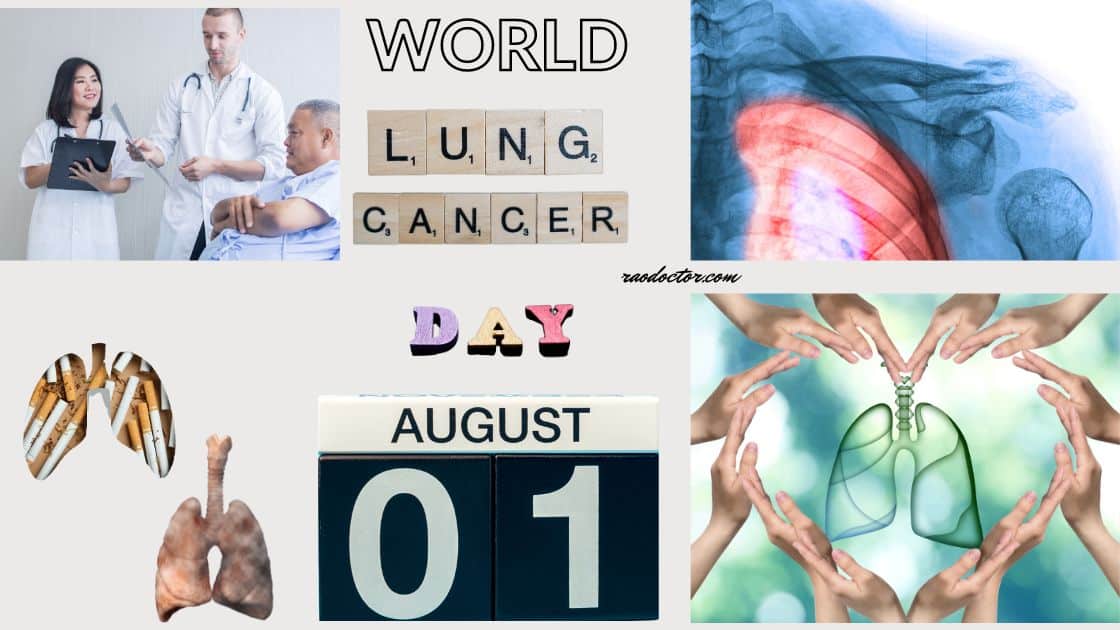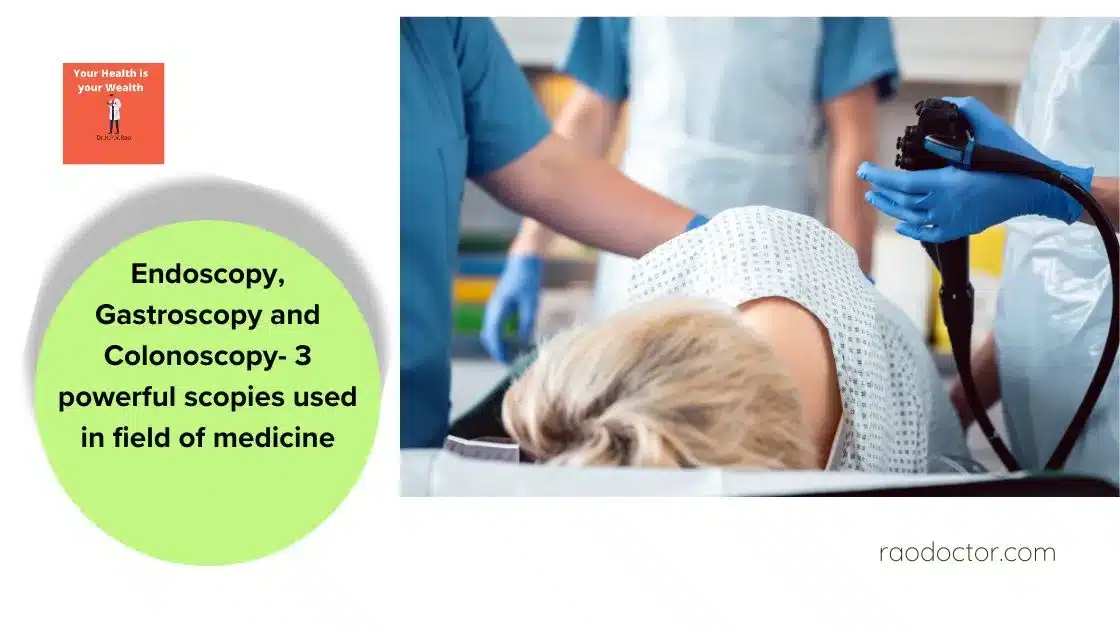Every year on August 1st, the world comes together to mark World Lung Cancer Day, a global initiative aimed at raising awareness about this silent killer and taking action to combat it.

Lung cancer remains one of the most common and deadliest forms of cancer worldwide, causing millions of deaths each year.
Despite its prevalence, lung cancer often goes undetected until it reaches advanced stages, making early detection and prevention efforts crucial.
In the recent past, as of 18th December 2022, I wrote about 7 Common Cancers in Men and Women. One of the cancers mentioned was lung cancer. You can check out the article here-
Disclosure: This blog article is not intended to provide medical advice. Please consult a healthcare professional for personalized information and guidance regarding lung cancer.
Table of Contents
Understanding lung cancer: Causes, types, and symptoms
Lung cancer is a disease characterized by the uncontrolled growth of abnormal cells in the lungs. It can originate in different parts of the lungs, such as the airways (bronchial), the lining of the lungs (pleural), or the supporting tissue (mesenchymal).
The main cause of lung cancer is smoking, with approximately 85% of all cases attributed to tobacco use.
However, non-smokers can also develop lung cancer due to exposure to secondhand smoke, environmental pollutants, genetic factors, or occupational hazards.
There are two primary types of lung cancer:
- Non-small Cell Lung Cancer (NSCLC) and
- Small Cell Lung Cancer (SCLC).
NSCLC is the most common type, accounting for about 80% of all lung cancer cases. It includes subtypes such as
- adenocarcinoma,
- squamous cell carcinoma, and
- large cell carcinoma.
SCLC, on the other hand, is less common but more aggressive, often spreading quickly to other parts of the body.
For more details on types of lung cancer, you can visit this site- GO2 for Lung Cancer
Signs and symptoms of lung cancer
Symptoms of lung cancer can vary depending on the stage of the disease.
In the early stages, there may be no noticeable symptoms or only mild ones, such as a persistent cough, chest pain, or shortness of breath.
As the cancer progresses, symptoms may worsen and include
- coughing up blood,
- hoarseness,
- unexplained weight loss,
- fatigue, and
- recurrent respiratory infections.
It is important to note that these symptoms can also be caused by other conditions, so it is essential to consult a healthcare professional for a proper diagnosis.
The impact of lung cancer worldwide
Lung cancer is a global health issue that affects millions of people each year. According to the World Health Organization (WHO), lung cancer is the leading cause of cancer-related deaths worldwide, accounting for approximately 1.8 million deaths annually.
In India, the situation is similar with the country registering about 103371 cases in 2022, a jump of about 5.2% from the previous two years.
The lung cancer cases have gone up from 98,278 in 2020 to 1,03,371 in 2022, registering a jump of 5.2 per cent, the government said in Parliament, quoting the Indian Council of Medical Research —
National Cancer Registry Programme (ICMR-NCRP).
It is responsible for more deaths than breast, colorectal, and prostate cancers combined. The burden of lung cancer extends beyond the individual affected; it affects families, communities, and societies as a whole.
The impact of lung cancer is particularly significant in low- and middle-income countries, where access to healthcare resources and smoking cessation programs may be limited.
In these regions, the prevalence of tobacco use, exposure to indoor and outdoor air pollution, and occupational hazards contribute to the high incidence of lung cancer.
Efforts to address the global burden of lung cancer must prioritize prevention, early detection, and access to affordable and effective treatment options.
Importance of raising awareness about lung cancer
Raising awareness about lung cancer is crucial to combatting this devastating disease. Despite its high death rate, lung cancer often lacks the public attention and funding that other types of cancer receive. This lack of awareness can result in delayed diagnosis, limited treatment options, and a higher risk of mortality.
By increasing awareness, we can promote early detection, prevention, and support for those affected by lung cancer.
Education is a key component of raising awareness about lung cancer. It is essential to educate the public about the causes and risk factors of lung cancer, including the dangers of smoking and exposure to secondhand smoke.
By understanding the link between tobacco use and lung cancer, individuals can make informed decisions about their health and take steps to reduce their risk.
Additionally, educating healthcare professionals about the latest advancements in lung cancer research and treatment can improve patient outcomes and survival rates.
Promoting early detection and prevention
Early detection is crucial for improving the prognosis of lung cancer patients.
When lung cancer is diagnosed at an early stage, treatment options are more effective, and the chances of survival are significantly higher. Efforts to promote early detection include regular screening for individuals at substantial risk, such as current or former smokers.
Screening for lung cancer is typically done using low dose computed tomography (LDCT), a non-invasive imaging test that can detect small nodules or tumors in the lungs.
What is LDCT?
A low-dose computed tomography (low-dose CT) scan is a test that healthcare professionals use to screen for lung cancer. It works similarly to a regular-dose CT scan but emits much less radiation.
The earlier detection of lung cancer can mean more treatment options are available to a person and a higher chance of a positive outlook.
During an LDCT scan, you lie on a table and a CT scan machine uses a low dose (amount) of radiation to make detailed images of your lungs. The scan only takes a few minutes and is not painful.
In America, the United States Preventive Services Task Force (USPSTF) recommends annual screening with LDCT for individuals aged 55 to 80 years who have a history of heavy smoking and currently smoke or have quit within the past 15 years.
In India, a similar group called ALK POSITIVE INDIA helps lung cancer patients. ALK is a short form of Anaplastic lymphoma kinase gene- a gene which causes cancer in a small number of NSCLC patients.
It is important to consult with a healthcare professional to determine if screening is appropriate based on individual risk factors.
In addition to early detection, prevention efforts play a vital role in reducing the burden of lung cancer.
The most effective way to prevent lung cancer is to avoid tobacco use and exposure to secondhand smoke.
Quitting smoking is challenging but achievable, and there are various resources available to support individuals in their journey towards a smoke-free life.
Public health campaigns, smoking cessation programs, and policies that restrict tobacco use in public places are essential in preventing new cases of lung cancer and protecting non-smokers from the harmful effects of secondhand smoke.
World Lung Cancer Day events and initiatives
World Lung Cancer Day serves as a platform for various events and initiatives aimed at raising awareness, promoting early detection, and supporting lung cancer patients.
These events are organized by healthcare organizations, advocacy groups, and communities around the world to unite in the fight against lung cancer.
Here are some examples of World Lung Cancer Day events and initiatives:
Awareness campaigns:
Many organizations use World Lung Cancer Day as an opportunity to launch awareness campaigns to educate the public about the risks, symptoms, and prevention of lung cancer.
These campaigns may include social media campaigns, public service announcements, and educational materials distributed in healthcare facilities, schools, and community centers.
Fundraising events:
Fundraising events are an integral part of World Lung Cancer Day, as they provide financial support for research, patient support programs, and advocacy efforts.
These events can take various forms, including charity walks, runs, cycling events, and virtual fundraisers.
Participants can raise funds individually or form teams to raise awareness and support for lung cancer research and services.
Medical conferences and symposiums:
World Lung Cancer Day is also a time for medical professionals, researchers, and policymakers to come together to discuss the latest advancements in lung cancer treatment, prevention, and advocacy. Medical conferences and symposiums provide a platform for knowledge-sharing, collaborative research, and the development of strategies to improve lung cancer outcomes globally.
Patient support groups:
World Lung Cancer Day is an opportunity to highlight the importance of emotional support and resources for lung cancer patients and their families.
Patient support groups may organize special events, workshops, or online forums to connect individuals affected by lung cancer and provide them with a safe space to share their experiences, seek advice, and access valuable resources.
Taking action against lung cancer: Support groups and resources
For individuals and families affected by lung cancer, support groups and resources can provide invaluable assistance and guidance.
These organizations offer emotional support, practical advice, and access to information about treatment options, clinical trials, and financial assistance.
Here are some notable support groups and resources for lung cancer patients and their loved ones:
American Lung Association:
The American Lung Association offers a variety of resources for lung cancer patients, including a lung cancer support community, educational materials, and a lung helpline that provides support and information about lung cancer and other lung diseases.
LUNGevity Foundation:
LUNGevity is the largest national lung cancer-focused nonprofit organization in the United States.
They provide a comprehensive support system for patients, survivors, and caregivers, including an online support community, educational webinars, and a Lung Cancer Navigator mobile app.
CancerCare:
CancerCare is a national nonprofit organization that provides free professional support services to anyone affected by cancer.
Their lung cancer program offers individual counseling, support groups, educational workshops, and financial assistance for transportation and treatment-related expenses.
Online support communities:
Online communities, such as Inspire and Smart Patients, offer a platform for individuals affected by lung cancer to connect, share experiences, and seek advice. These communities provide a sense of belonging and understanding for those facing a lung cancer diagnosis.
Inspiring stories of lung cancer survivors and advocates
In the face of a lung cancer diagnosis, many individuals find strength, resilience, and hope. The stories of lung cancer survivors and advocates serve as a source of inspiration and encouragement for others affected by this disease. These individuals raise awareness, challenge stigmas, and promote research and funding for lung cancer.
One such advocate is Bonnie J. Addario, a lung cancer survivor and founder of the Bonnie J. Addario Lung Cancer Foundation.
After being diagnosed with lung cancer in 2004, Bonnie dedicated her life to advocating for lung cancer awareness and research. Through her foundation, she has worked tirelessly to improve the lives of lung cancer patients and their families, with a focus on early detection, personalized treatment, and patient empowerment.
Another inspiring individual is Chris Draft, a former NFL player who lost his wife to lung cancer in 2011. In honor of his late wife, Chris founded the Chris Draft Family Foundation, which raises awareness about lung cancer and supports lung cancer patients and their families.
He has become a prominent advocate for lung cancer prevention, early detection, and equal access to healthcare.
These stories of resilience and determination remind us of the importance of supporting lung cancer patients and their loved ones and of the progress that can be made through advocacy and collective action.
How to get involved on World Lung Cancer Day
World Lung Cancer Day is an opportunity for individuals, communities, and organizations to join forces in the fight against lung cancer. Here are some ways you can get involved and make a difference on World Lung Cancer Day:
- Educate yourself and others: Take the time to learn about the causes, symptoms, and prevention of lung cancer. Share this knowledge with your friends, family, and community to raise awareness and promote early detection.
- Support fundraising events: Participate in or donate to fundraising events organized on World Lung Cancer Day. Every contribution counts and can make a difference in advancing research, supporting patients, and advocating for better lung cancer care.
- Volunteer your time: Offer your time and skills to organizations working to raise awareness and support lung cancer patients. Volunteer at local events, assist with fundraising efforts, or provide assistance to individuals affected by lung cancer.
- Advocate for change: Write to your local representatives, urging them to support policies that promote tobacco control, increase funding for lung cancer research, and improve access to screening and treatment options.
- Share stories of hope: Use social media platforms to share stories of lung cancer survivors, advocates, and healthcare professionals who are making a difference in the fight against lung cancer. Spread messages of hope, support, and empowerment to inspire others.
Conclusion: The power of collective action in the fight against lung cancer
World Lung Cancer Day serves as a reminder of the urgent need to address the global impact of lung cancer.
By raising awareness, promoting early detection, and supporting lung cancer patients, we can make a significant impact in reducing the burden of this disease.
Through education, advocacy, and collective action, we have the power to improve outcomes, save lives, and bring hope to individuals and communities affected by lung cancer.
On August 1st, let us unite in the fight against lung cancer and work towards a future where this silent killer is no more.
Useful links:
(1) World Lung Cancer Day Fact Sheet – CHEST. https://www.chestnet.org/Newsroom/CHEST-News/2021/07/World-Lung-Cancer-Day-Fact-Sheet.
(2) World Lung Cancer Day | American Lung Association. https://www.lung.org/lung-force/about-lung-force/featured-campaigns/world-lung-cancer-day.
(3) Honoring World Lung Cancer Day – August 1, 2023 | LCFA. https://lcfamerica.org/get-involved/events/world-lung-cancer-day/.
(4) World Lung Cancer Day: Awareness – Michigan State Medical Society. https://www.msms.org/About-MSMS/News-Media/world-lung-cancer-day-awareness.
(5) Evolving Trends In Lung Cancer
Kindly share this article so that your friends/family members are aware of this cancer. Alternately you can Click to tweet below-
World Lung Cancer Day: Raising Awareness Against the Silent Killer Share on XFinal Words
I hope you enjoyed reading this article. Rainy season is going on in most parts of India at present giving rise to respiratory tract infections. So, I have dedicated my next article to one lower respiratory tract infection which is common in this season- Pneumonia.




